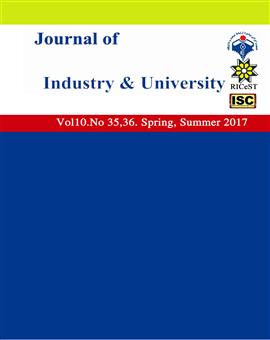-
-
List of Articles
-
Open Access Article
1 - INTRODUCING A MODEL FOR IDENTIFICATION OF FACTORS IN ACADEMIC INCUBATORS AND ITS ROLE IN ESTABLISHMENT OF SPIN-OFFS
maryam hafezian -
Open Access Article
2 - Ranking of Iran’s universities and Industries based on the co-publication indicator in Persian journals of Islamic world Science Citation (ISC)
Mansoureh Serati Shirazi -
Open Access Article
3 - xxxx
reza mahidi masoud shafiee -
Open Access Article
4 - A reflection on the ethics of professional ethics in university governance; providing solutions to improve university communication with society
bijan abdollahi سیده طیبه موسوی امیری -
Open Access Article
5 - World-Class University: An exploration of Concepts, Approaches and Strategies
Mohammad Farzaneh hassanreza zeinabadi abdolrahim nave ebrahim bijan abdollahi -
Open Access Article
6 - The Smart Specialisation and the roles of universities in the ecosystem of innovation in the evolution towards sustainability.
Mohammad zarinjooee drnemati drnemati
-
The rights to this website are owned by the Raimag Press Management System.
Copyright © 2017-2025







